The AMD Ryzen 7: plenty of power, but underwhelming gaming performance
Great for video editors, not so great for gamers.
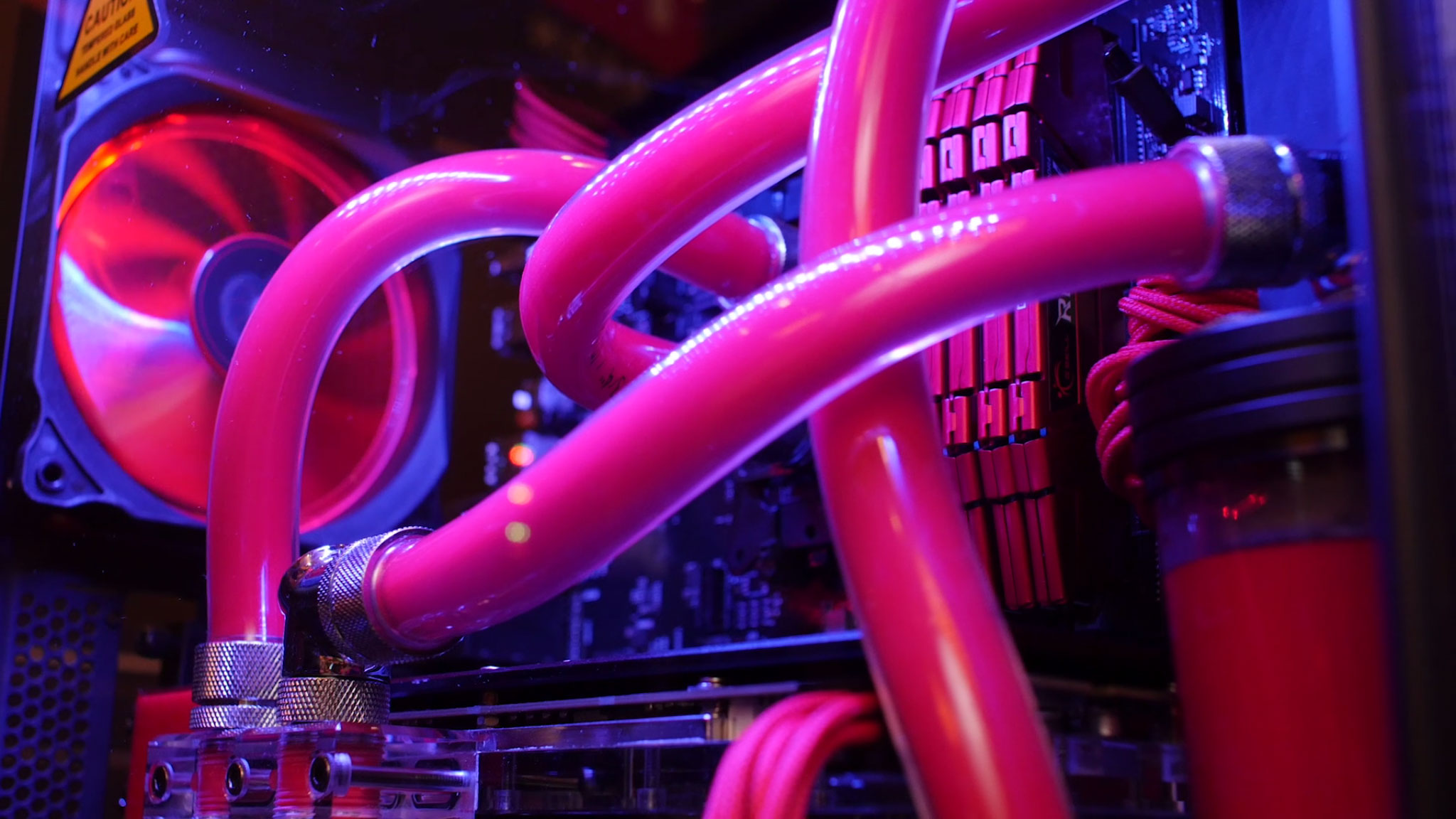
Ryzen CPU benchmarks
I've run my usual collection of eleven tests, comprising seven applications. You can see the individual results in the gallery below, and the overall performance looks very promising. The three Ryzen 7 CPUs (at stock clocks, which I'll discuss more when I get to overclocking on page six) all fall between the i7-6900K and the i7-6850K in performance, with the 1800X just edging out the older Haswell-E i7-5960X. But averaging ten tests obscures some things, so be sure to check out the individual charts.
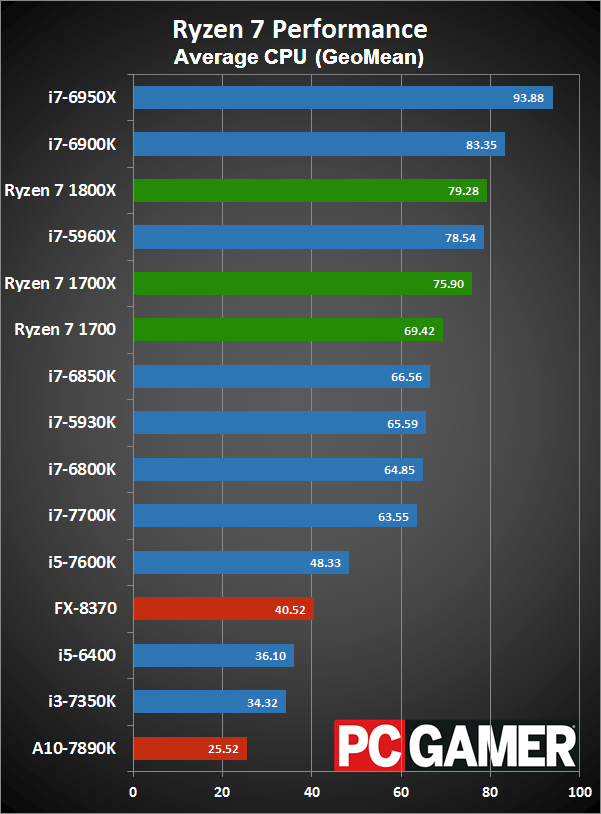
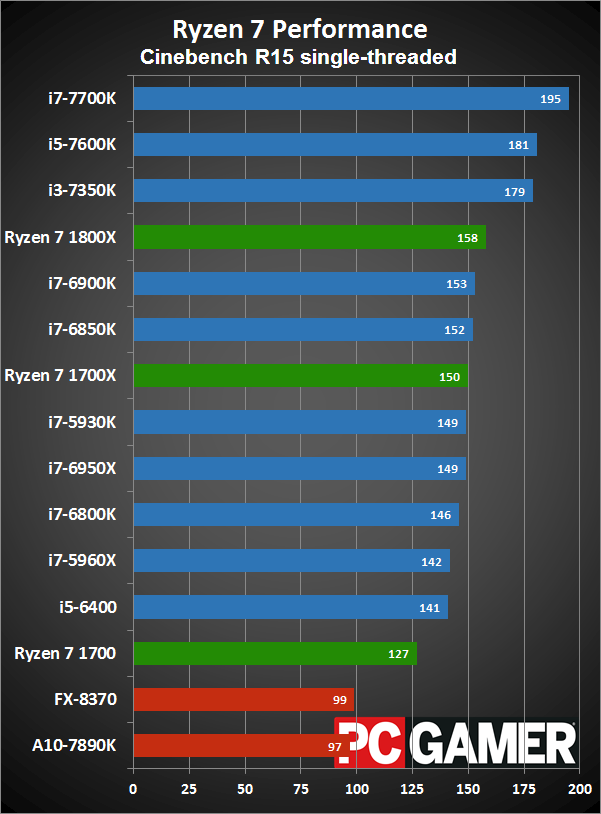
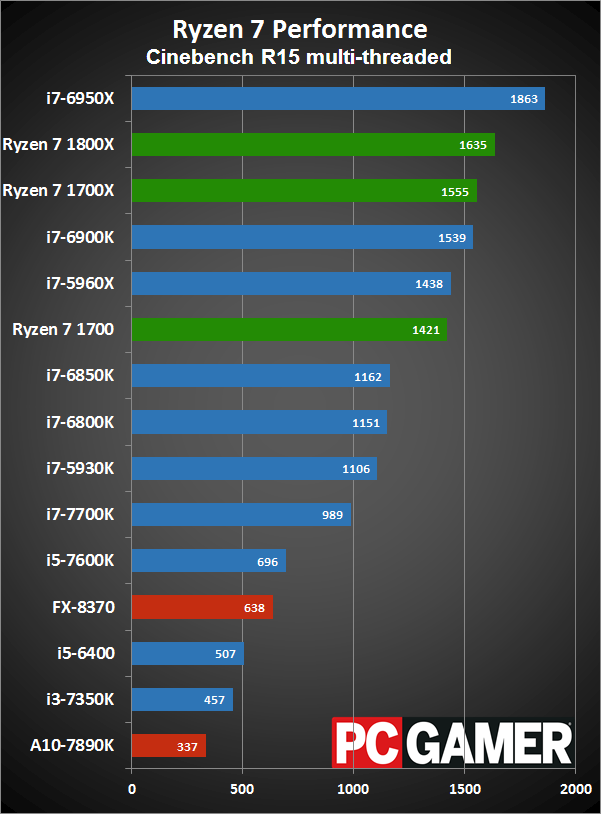
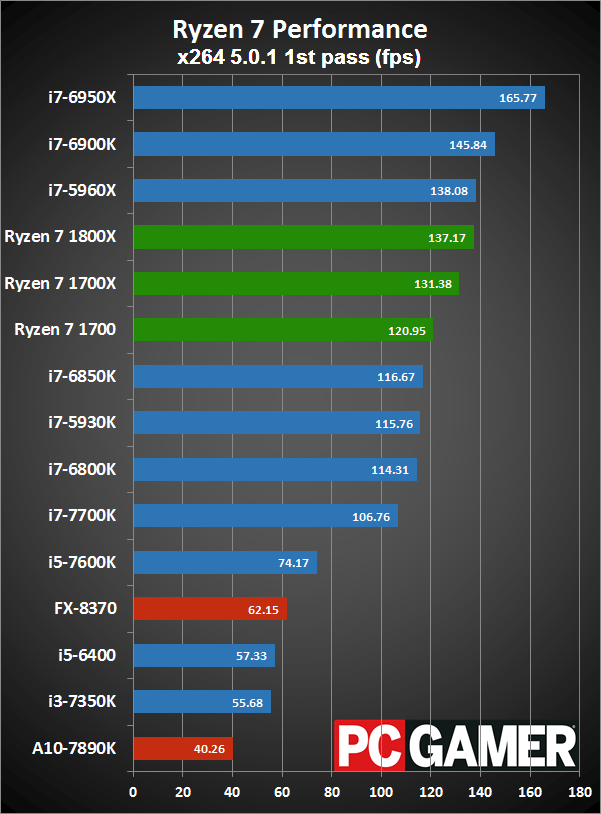
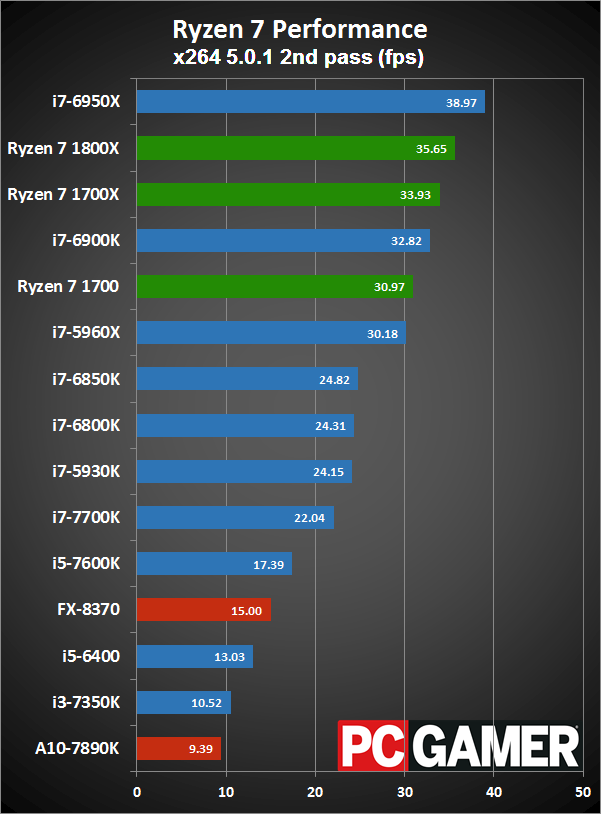
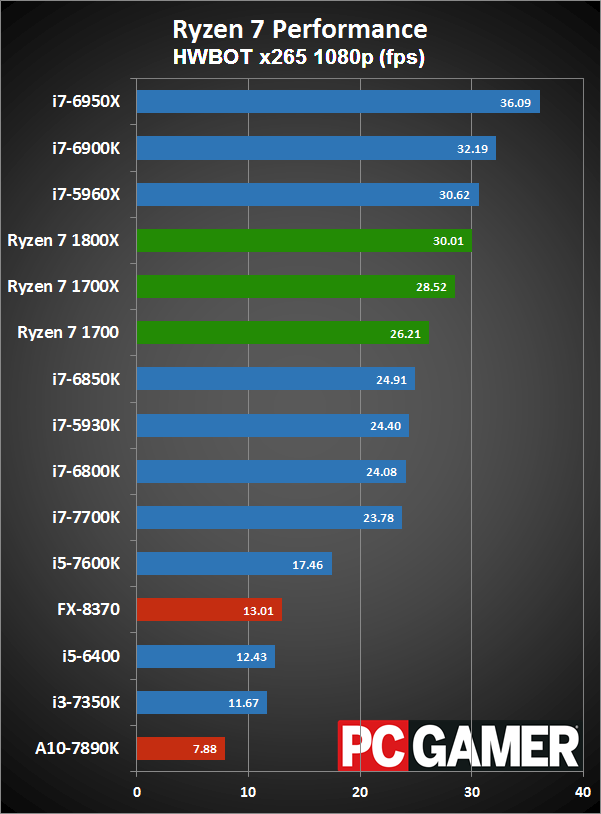
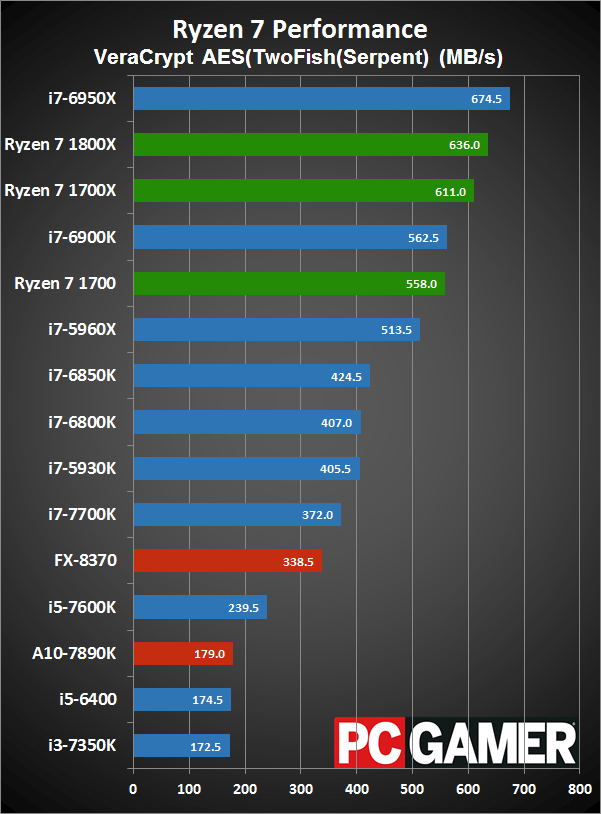
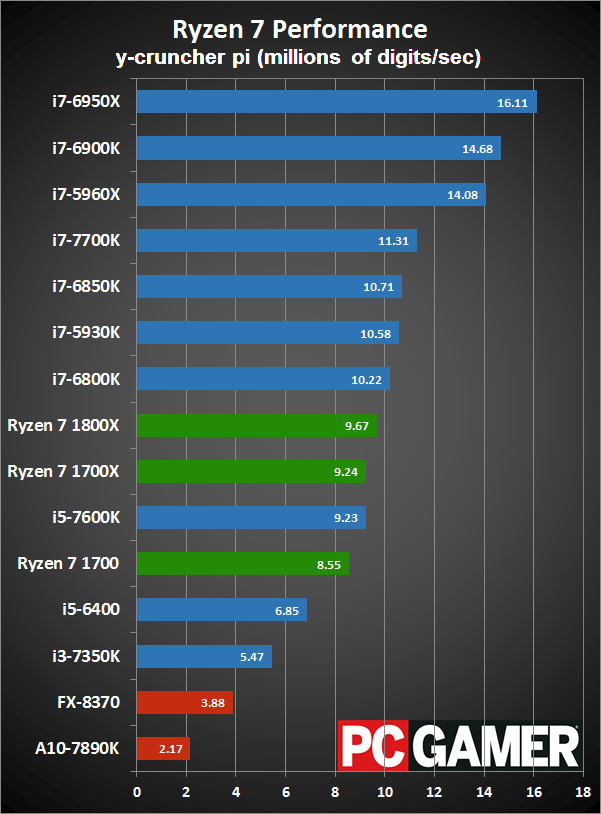
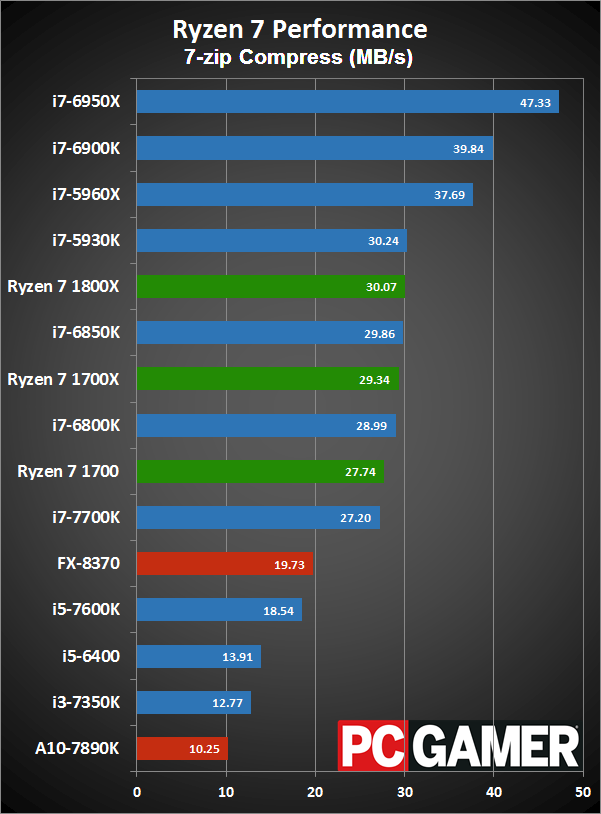
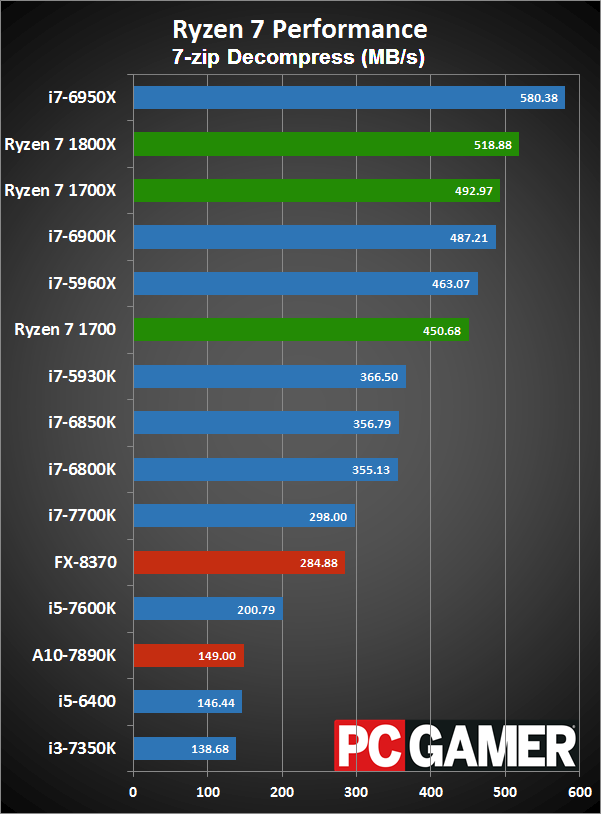
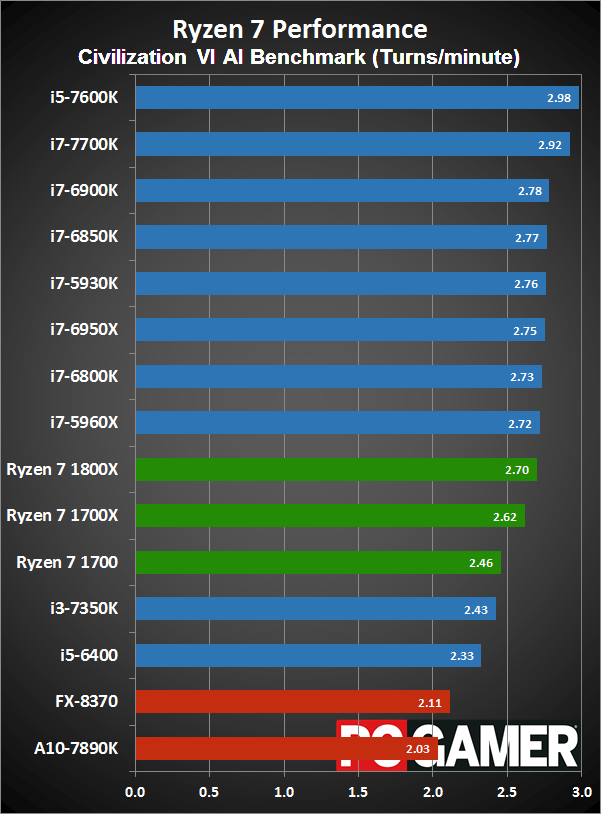
Starting with AMD's top part, Ryzen 1800X wins half of the benchmarks against the 6900K, but Intel takes a commanding lead in two of the five tests that it wins, and both tests happen to be somewhat atypical workloads.
First, y-cruncher is a program that solves digits of pi, as well as some other mathematical constants. It's one of the few applications that can really stress a processor's AVX instruction set. Intel created AVX, and its CPUs implement additional 512-bit AVX calculations that give it an advantage. In this particular case, the 6900K beats the 1800X by 50 percent. But while that might look horrible, there aren't a lot of applications, particularly consumer applications, that leverage AVX in this fashion, and Ryzen still represents a dramatic improvement in AVX workloads compared to poor FX-8370—the 1800X is 150 percent faster than the 8370.
The second test that skews heavily toward Intel is 7-zip compression, with the 6900K leading the 1800X by 32 percent. The reason for this particular lead is simple: data compression searches memory for repeated patterns, and ends up being the best real-world use case for higher performance RAM. Intel's quad-channel memory on the X99 platform gives it a bit leg up on the competition. Decompression is a different story, as it's far less memory intensive and Ryzen is able to claim a win there.
Looking quickly at the other results, Ryzen has small victories in single-threaded Cinebench, with a slightly larger lead in the multi-threaded workload. Intel wins the x264 1st pass, which is less strenuous (perhaps the thread scheduling plays a role here), while Ryzen wins in the lengthier second pass. Intel also takes a small lead in the x265 testing. VeraCrypt makes good use of AES instructions, and Ryzen claims its largest win. And finally, Intel leads by a small amount in the Civilization VI AI benchmark (which doesn't really scale that well beyond six cores from what I can see).
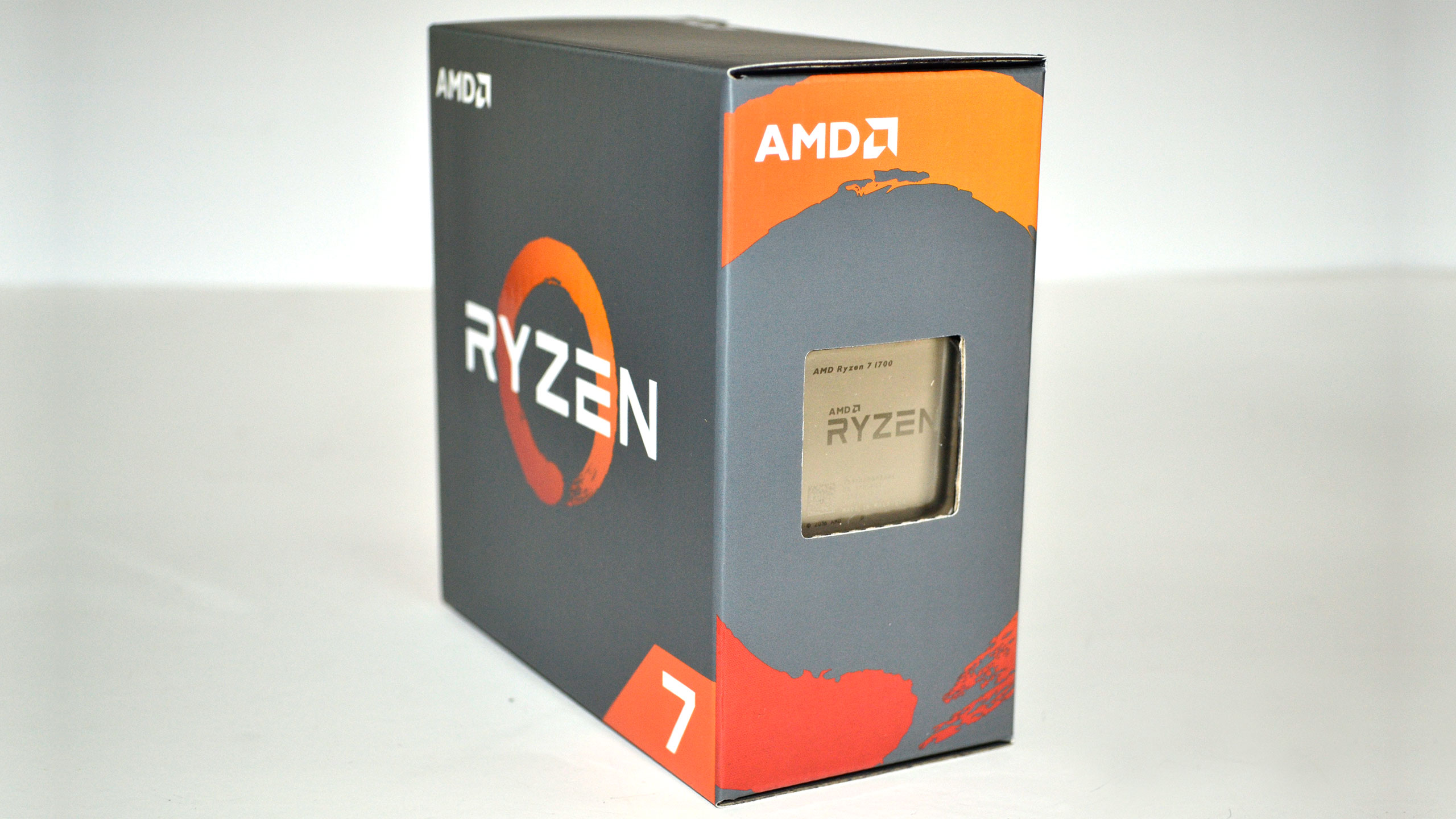
Looking at the two lower cost Ryzen 7 chips, the Ryzen 1700X is intended to compete with Intel's i7-6800K, and compete it does. Thanks to having two extra CPU cores (four extra threads), for the heavy CPU workloads used here, Ryzen 1700X comes out on top in all but two benchmarks—y-cruncher again shows a 10 percent deficit, which the Civ6 AI test is basically a tie. Overall, the 1700X takes down the 6800K and delivers 17 percent higher performance across my CPU test suite.
For the Ryzen 1700, AMD suggest the i7-7700K as a good matchup based on pricing. With twice as many cores/threads, you'd expect Ryzen to easily win this battle, but it's actually closer than the above matchup. The key is the 7700K's high clockspeed, which gives it a commanding 54 percent lead in the single-threaded Cinebench test. It also comes out 19 percent faster in the Civ6 AI test. But in the other tests, the 1700 is anywhere from 10-50 percent faster, with an overall lead averaging out to just shy of 10 percent.
Keep up to date with the most important stories and the best deals, as picked by the PC Gamer team.
Interestingly, even though Intel's X99 CPUs are all rated at 140W TDP compared to 95W for the 1700X/1800X Ryzen parts, power use under heavily threaded CPU workloads (like Cinebench multi-threaded) are similar—between 170W and 200W, give or take. Idle power on the other hand favors Ryzen over the X99 platform by about 20-40W (depending on the CPU and the quality of the particular chip), while Skylake/Kaby Lake use about 10W less than Ryzen at idle, and 40W less under load. The Ryzen 1700 chip on the other hand does exceptionally well, with load power just slightly below the i7-7700K. In other words, don't take the TDPs as the only real indication of power requirements.
Power, AVX, and memory bandwidth notwithstanding, this is exactly the sort of performance I was hoping to see from Ryzen. I never expected it to win every benchmark, but keeping up with Broadwell-E/Haswell-E—at significantly lower prices!—is something I can definitely get behind. Provided of course that there are no catastrophic shortcomings. Which brings us to the gaming results.
Current page: Ryzen CPU benchmarks
Prev Page Ryzen's performance Next Page Ryzen gaming performance previewJarred's love of computers dates back to the dark ages when his dad brought home a DOS 2.3 PC and he left his C-64 behind. He eventually built his first custom PC in 1990 with a 286 12MHz, only to discover it was already woefully outdated when Wing Commander was released a few months later. He holds a BS in Computer Science from Brigham Young University and has been working as a tech journalist since 2004, writing for AnandTech, Maximum PC, and PC Gamer. From the first S3 Virge '3D decelerators' to today's GPUs, Jarred keeps up with all the latest graphics trends and is the one to ask about game performance.


